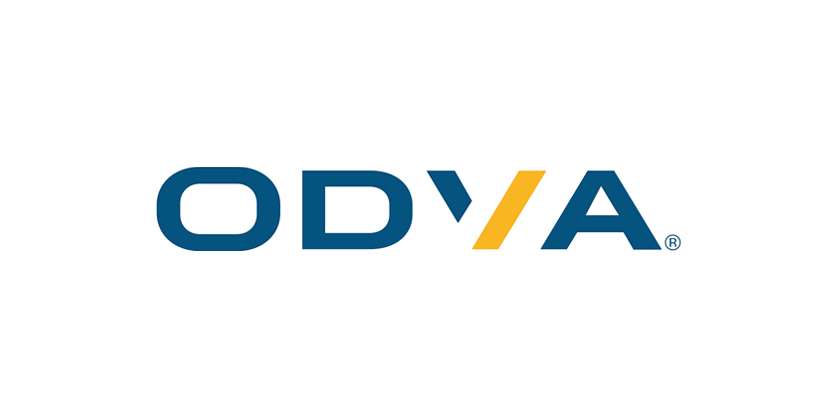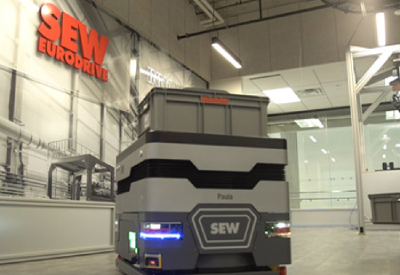Joint Press Release from ODVA, OPC Foundation, PI and VDMA
April 10, 2024=5

Optimized energy savings thanks to innovative standards
Accurate energy consumption data is essential for companies aiming to achieve climate-neutral production. To support this goal, a consortium of organizations including ODVA, OPC Foundation, PI, and VDMA have recently published a groundbreaking specification for interoperable and efficient energy management in industrial and process automation.
A key goal of the mechanical and plant engineering industry is to achieve climate-neutral production in the future. This effort is supported by the European Union’s European Green Deal, which aims to make Europe climate-neutral by 2050. In order to achieve this goal and implement many other use cases, accurate data on energy consumption in production is crucial. The consortium, consisting of the organizations ODVA, OPC Foundation, PI and VDMA, has now jointly published version 1.0.0 of their groundbreaking specification for interoperable and efficient energy management in industrial automation and process automation. This group is chaired by the VDMA.
Dietmar Bohn, Managing Director of PNO, explains: “The measurement and analysis of energy consumption in machines and systems is an extremely important topic for the future. We are pleased to make an active contribution to this important initiative to optimize energy consumption and thereby reduce the harmful effects on the environment caused by waste and surplus.”
Standardized information model based on OPC UA
This specification defines a standardized information model based on OPC UA that enables comprehensive energy management in industrial automation. “This Power Consumption Management collaboration ensures that end users have a highly standardized and interoperable means of achieving their environmental, social and governance (ESG) goals,” explains Dr. Al Beydoun, President and CEO of ODVA.
The introduction of this standard will make energy management in industry considerably easier: companies can now record, analyze and use precise and consistent energy data even more efficiently in order to further increase their energy efficiency. This not only helps to reduce operating costs, but also to reduce the ecological footprint. Standardization makes it possible to implement innovative technologies and best practices faster and more effectively, which contributes to more sustainable and environmentally friendly production in the long term.
Monitoring and standby management: core content of the new specification
The specification essentially comprises two main content fields: Firstly, monitoring, i.e. the display of all types of energy consumption, including electrical energy as well as energy from air, water or coal. Secondly, standby management, which is understood to mean the control and display of various energy-saving modes on machines and components. It is based on the results of the research project “Development of energy management interfaces for IoT technologies (IoTEnRG)”. “The aim of the IoTEnRG research project was to make the results available to industry.
They were able to contribute our results directly to the Joint Working Group and thus significantly accelerate the development of the OPC UA Companion Specification,” says Prof. Dr. Niemann from the Institute for Sensor Technology and Automation at the University of Applied Sciences and Arts in Hannover.
“For digitalization, we need an agreement on a common understanding and description of data, including in the energy sector. OPC UA provides exactly that. I am proud that with this joint group, we can also contribute to the energy transition and thus promote optimized energy savings through standardized and efficient monitoring,” says Stefan Hoppe, President of the OPC Foundation.
Machinery Building Block: A step towards climate-neutral production
The VDMA has defined a fundamental standard for the entire mechanical and plant engineering industry, known as “OPC UA for Machinery”. Various functional building blocks are specified in this standard. A new building block for energy management is being developed based on the publication. “The four organizations have been working hard to harmonize and standardize information on energy consumption in manufacturing. This is an excellent first step towards defining an upcoming OPC UA Building Block for mechanical engineering that will bring the machine and plant manufacturing industry a big step closer to the goal of climate-neutral production,” says Andreas Faath, director of the VDMA Machine Information Interoperability department.
More Information
Further information can be found on the following websites:
About ODVA
The ODVA is an international standards development and trade organization with members from the world’s leading automation suppliers. The ODVA’s mission is to promote open, interoperable information and communication technologies for industrial automation. Its standards include the Common Industrial Protocol or “CIP™”, ODVA’s media-independent network protocol, as well as industrial communication technologies such as EtherNet/IP™, DeviceNet® and others. For the interoperability of production systems and their integration with other systems, the ODVA advocates the introduction of commercially available standard Internet and Ethernet technologies as a guiding principle. This principle is exemplified by EtherNet/IP – today’s leading industrial Ethernet network.
Visit ODVA online at: www.odva.org
Contact: Steve Fales
About OPC Foundation
Since 1996, the OPC Foundation has supported the development and adoption of OPC standards for information exchange. As the proponent and guardian of these specifications, the Foundation’s mission is to help industry vendors, end users and software developers maintain interoperability of their manufacturing and automation equipment. The OPC Foundation provides excellent technologies, processes and certifications to achieve secure and reliable multi-vendor interoperability, platforms for moving data and information from the embedded world to the enterprise cloud. The OPC Foundation has over 1010 members worldwide in the fields of industrial automation, IT, IoT, IIoT, M2M, Industry 4.0, building automation, machine tools, pharmaceuticals, petrochemicals and smart energy. Visit the OPC Foundation online at: www.opcfoundation.org
Contact: Stefan Hoppe
Stefan.Hoppe@OPCFoundation.org
About PI
The PROFIBUS Nutzerorganisation e.V. (PNO) is the world’s leading industry association for the development, standardization and dissemination of industrial communication and automation technologies. Together with 23 other regional organizations, which are all members of the international umbrella organization PROFIBUS & PROFINET International (PI), as well as the test, training and consulting centers, the PNO as an international community offers its 1,800 member companies an attractive portfolio of services. PI technologies cover all key markets in industrial automation, from factory automation and process automation to drive and motion control applications.
Visit PROFIBUS online at: https://www.profibus.de
Contact: Barbara Weber
About the VDMA
The VDMA represents 3600 German and European mechanical and plant engineering companies. The industry stands for innovation, export orientation and medium-sized businesses. The companies employ a total of around 3 million people in the EU-27, more than 1.2 million of them in Germany alone. This makes mechanical and plant engineering the largest employer among the capital goods industries, both in the EU-27 and in Germany. It accounts for an estimated turnover of around 910 billion euros in the European Union. Around 80 percent of the machines sold in the EU come from a production facility in the internal market.
Visit the VDMA online at: https://www.vdma.org/
Contact: Heiko Herden
Related Story
ODVA Organizational Leadership Selected for 24th Term
The leadership for ODVA’s 24th term was elected and announced at the 23rd Annual Meeting of Members in Clearwater, Florida, USA on March 20, 2025. The organization has launched a strategic initiative to improve research for future technologies and trends, streamline prioritization and planning, and achieve enhanced operational excellence. This future-focused vision is an effort to be prepared for the challenges of tomorrow and is the result of a comprehensive review process initiated by ODVA’s Board of Directors.



